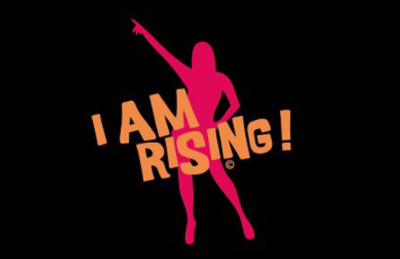Woops, sorry – I edited this after having sent it out
The other day in Avanzado 2 Monday the term “mobbing” came up (mobbing < mob) and I clarified its meaning and pronunciation, which is not /múvin/ but /móbin/! 😀 “Bullying” also came up as another borrowing from English related to naming a group of people who hurt / abuse one person in various ways, not necessarily physically. Typically, mobbing takes place in private enterprises, where adults might get to be far too competitive, and bullying has school toilets and playgrounds as its typical scenario.
This week (yesterday) we also started a consciousness-raising activity in our School, in order to make people reflect upon our role in emergency situations. We teachers are useful for all kinds of things. But we’d rather have professionals in this area doing this. Guess why we can’t have them. Anyway, possibly next week, we don’t know when, an alarm will ring, indicating we should evacuate the building. We have to pretend it’s true, i.e. there’s much to learn from it. (And then once the activity is over, we can celebrate!) All occasions in life when you have the chance to learn something as relevant as this should be taken seriously! 🙂 You might think it’s useless because we all know it’s not true. How can I explain it’s not useless, considering I’m not a fire fighter! Well, I’ll resort to my experience, as usual. At the end of the 1980s I attended a few trainings in Spain on nonviolent direct action, conducted by people in the pacifist movement – the MOC men and women, COs and total resisters. I did so because I was traveling to Central America to be a nonviolent escort and an international witness with an independent NGO called Peace Brigades International. Our mission was deterring violence against the people we “accompanied.” Guess what we, the team, did every week. We set up a role-play, un sociodrama, based on a violent situation we might confront, and then we analyzed our reactions. This was very useful to allow us be well-prepared (not only psychologically, I must say) to react in the best possible way when we were “accompanying” human rights activists, trade unionists, relatives of the disappeared people, peasants… people who could be murdered or kidnapped in front of our very eyes — of course, this doesn’t mean we would necessarily succeed, you never know if you’re going to be able to control your fear, but the more scenarios you have in mind, the more chances there are for you to react in some of the ways you imagined. This is obvious! I also used scenario-analysis to feel more confident when wandering on my own at night in the city, or when traveling on my own. I’ve always supported freedom of movement for women, too! 😀 — and the visualization of a horrible threat women have had. (Oh, just remembered: the other day I mentioned this in some group, can’t remember now which: the feminist movement Take back the night! might’ve inspired (too) today’s slogan Take back the streets, like the MOC movement here inspired the present Conscientious Objection (CO) by workers in the Healthcare system.)
Evacuation needs to be a community process, and this means, we have to learn to take care of ourselves while trying to help out in the process, at least trying not to make things worse. We need to learn to control our fear and allow the goodness people are capable of, because most human beings are capable of solidarity. So three important pieces of advice that help greatly are:
1. Try to be silent – when people shout we can’t hear instructions that people in charge or people who have decided to help others might be giving. Also, we wouldn’t be able to hear people who were shouting for help, if something had happened (e.g. someone locked in a toilet.) Uncontrolled screaming — out of fear, because of panicking – obviously, not because of pain — increases the chances the crowd becomes a mob, a destructive force, murderous as we witnessed recently.
2. Forget about material things, i.e. belongings. Your priority should be your life and avoiding harming other people. If you are lucky and get the chance to put into practice how to behave in an emergency evacuation, it is not a good idea to waste this opportunity.
3. Move swiftly but carefully towards the exit (and then away from the entrance!), with the group of people around you, caring for yourself and others while thinking that everybody in the building needs to get out as soon as possible, which means, for instance, that you should not block the exits – not inside the building, not outside the building.
The equation Ignorance + Fear = Violence, like what happens with Anger + Fear = Violence, should be avoided, we should try our best to avoid it. We should not forget about our ability to be kind, to exert civic behavior. Most of us have the potential to behave in two very different ways: destructively, or controlling our fear and in solidarity.
Btw, I forgot to talk about this to the 16.30 Avanzado 2 Tuesday group! It seems my mind was more into hearing you talk about love! Oh my! 😀 Well, I hope the practice is not next Tuesday!!
Well, aren’t I a chatter box!!! 😀
More ideas for you mull over!
What is “mob mentality”
Source: adapted from Wise Geek (a team of researchers, writers and editors dedicated to providing short, clear and concise answers to common questions).
The term “mob mentality” is used to refer to unique behavioral characteristics that emerge when people are in large groups. It is often used in a negative sense, because the term “mob” typically conjures image of an aggressive, chaotic group of people. Social psychologists who study group behavior also use terms such as “herd behavior,” “herd mentality” or “crowd hysteria” to describe similar behaviors. The study of mob mentality is used to analyze situations that range from problems during evacuations to public gatherings that turn violent.
Herd Behavior
Not until the early 20th century did we start applying scientific theories about crowd behavior to humans, and we did so in order to find ways to minimize or control it. One reason for herd behavior is that humans, like other species, tend to do what others around them are doing. This usually is because those who join the group in the behavior figure that if several others are doing something, it must be worthwhile, or they would not be doing it. For example, people figure that a crowded restaurant must be serving good food, or it would not be as busy. In most cases, this thought process comes subconsciously, which is one reason why all animals take part in herd behavior.
Herd Mentality
Herd mentality involves more conscious thought than herd behavior. This type of mentality can be influenced by things such as peer pressure, conformity, the need for acceptance and the desire for a sense of belonging. These things often cause people who are in groups to behave in ways that are similar to others in the group. For example, you might choose to listen to different music when in a group of friends than you would listen to when alone, because the others might make disparaging remarks if another type of music is chosen. People in crowded celebrations tend to drink alcohol because of peer pressure, men in football events tend to use aggressive language that often leads them to physical violence.
Mob Mentality
Other factors come into play when the term “mob mentality” is used to refer to something negative. Two of the main factors are the greater anonymity that exists within a group and the distribution of responsibility for the group’s actions. These factors sometimes make a person believe that they can act a certain way within a group and not have the same consequences that the same actions would have if he or she acted alone. For example, if someone is in a group that is vandalizing a building, he might believe that there is less of a chance of getting caught than if he was acting alone, because it might be difficult to identify every person who was involved. This person might also feel less guilt because other people also vandalized the property. Another factor in mob mentality is the sense of confusion or even panic that can exist in a large group. An example of this can be seen when people in crowds suddenly begin rushing in one direction. Although many people in the group might not know why this is happening, they see the urgency in the group and begin rushing in that direction, too. In extreme cases, the urgency and panic increases, creating a sort of crowd hysteria, and some people might even get trampled (crushed) as a great number of people try to move in the same direction as quickly as possible. Even for something as seemingly innocent as a department store sale, a mob mentality might be evident as dozens of shoppers rush toward the sale items, push each other out of the way and fight over the items.
With the Lexical Creativity workshop I help students learn about word-formation (morphology) and how we create words in a language. Morphology helps you decipher the meaning of some of the words you might not know, too… And learning about linguistic creativity also helps you get some jokes because, it’s a fact, in all languages we make up words and expressions, but in English it’s mighty easy!












 I have finally finished a two-page list of Speaking Tasks. It’s useful for people using the mentioned textbook, but it might be useful for more people, to get some sort of idea of topics dealt with at this level.
I have finally finished a two-page list of Speaking Tasks. It’s useful for people using the mentioned textbook, but it might be useful for more people, to get some sort of idea of topics dealt with at this level.













